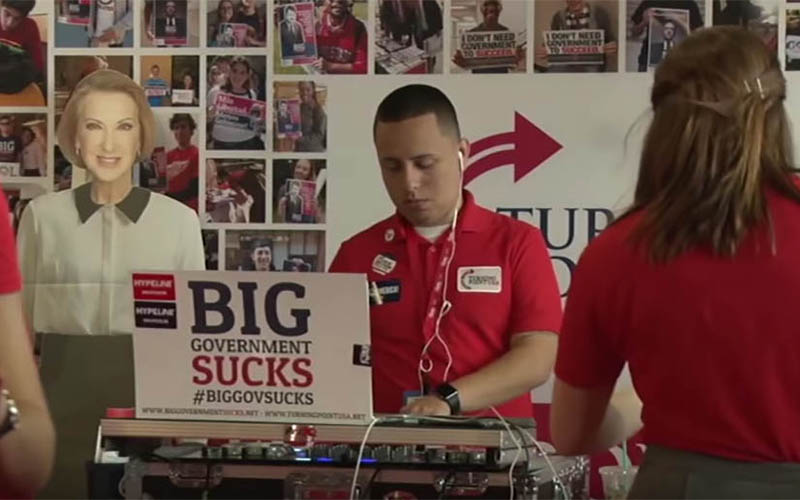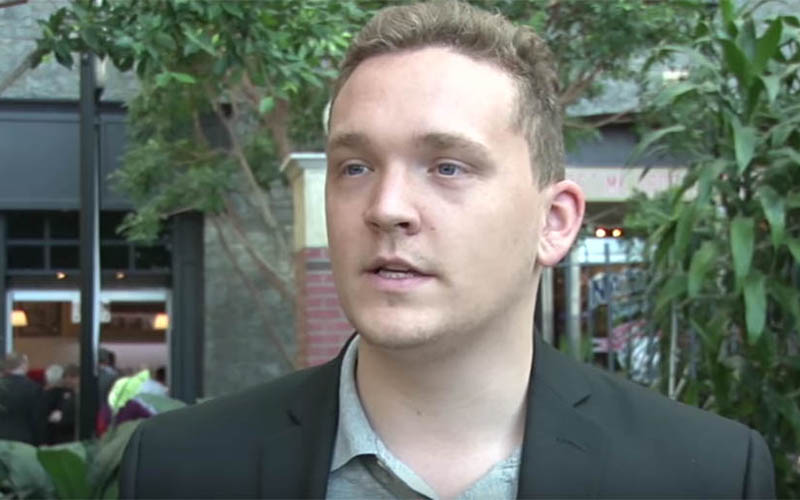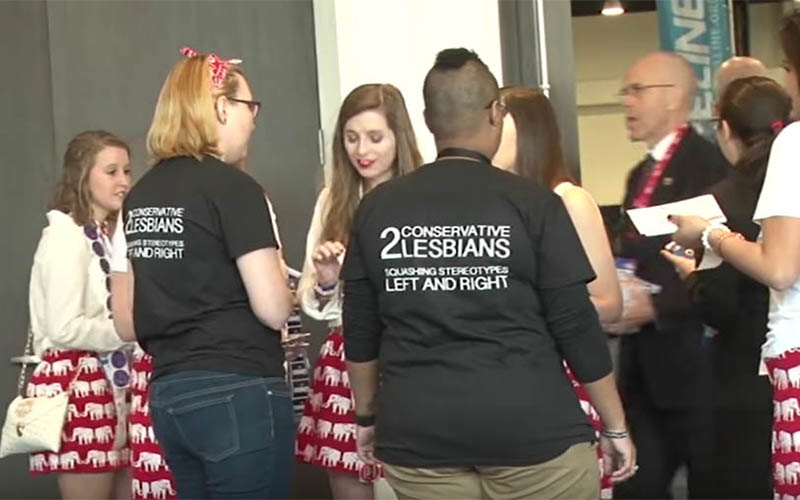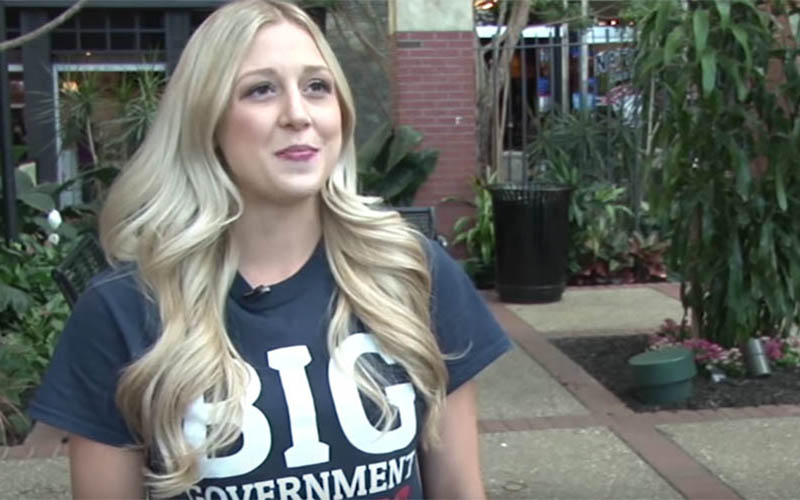
Millennials, including a number from Arizona, made up a large part of the audience at the annual Conservative Political Action Conference near Washington this weekend – and brought their own perspectives. (Photo by Lauren Clark/Cronkite News)

Parker Dippel, an Arizona State University College Republican at the CPAC conference, said he thinks establishment conservatives ”will change their target audience” to reach millennials – “or at least I hope they would.” (Photo by Lauren Clark/Cronkite News)

More- and less-traditional faces of conservatism at CPAC. Meredith Walker, on left in black shirt, said younger conservatives are less concerned about sexual orientation and more about getting government out of private lives. (Photo by Lauren Clark/Cronkite News)

Millennials may differ with older conservatives in some areas, but not on issues like lower taxes, smaller government and a free market, said Flagstaff native Emily Parry, the Arizona representative for Turning Point USA. (Photo by Lauren Clark/Cronkite News)
FORT WASHINGTON, Md. – Meredith Walker is at the Conservative Political Action Conference here, standing across from a booth with posters proclaiming “Big Government Sucks!” and chatting with a group of girls in bright pink Republican elephant skirts and bows.
Walker, a Phoenix native, is talking amiably while wearing a shirt with the phrase “Two Conservative Lesbians” emblazoned on the back and two rainbow female gender symbols decorating the front.
It’s a different look for this annual conservative conference that draws thousands and is a must-stop on the itinerary of most conservative politicians. But Walker says it’s also a different conservative movement than the one that pushed for the Defense of Marriage Act more than two decades ago.
“The young vote that is coming in, they are overwhelmingly more pro-gay, more pro-gay marriage,” said Walker, the author of “A New Breed of Elephant.” “Or at the least, getting the government out of your personal life.”
She was one of a number of Arizona millennials who brought their own brand of conservatism to CPAC at the National Harbor resort just outside Washington.
Josh De Ford, a Kingman native and political analyst for Outset magazine, referred to them as “the conservatives who, no doubt that they are conservative young people, but they do have these different views in certain areas.”
Students from both Arizona State University and the University of Arizona came for four days of socializing, networking and listening to conservative commentators and elected officials, including Arizona Secretary of State Michele Reagan, who spoke on voting fraud.
The conference, sponsored by the American Conservative Union, had seven current or former GOP presidential candidates from this election scheduled to speak.
Sens. Ted Cruz, R-Texas, and Marco Rubio, R-Florida, were scheduled, while surgeon Ben Carson used his speech there Friday to formally announce that he was dropping out of the race.
Republican presidential front-runner, real estate mogul Donald Trump, was scheduled to speak but backed out Friday to campaign instead, according to press accounts.
– Cronkite News video by Lauren Clark
The star power of the conference is clearly one of the attractions of CPAC.
“Marco Rubio is coming. I would love to hear him speak. … ‘The Donald. will be here as well,” Parker Dippel, an ASU College Republican, said on Thursday, before Trump backed out.
But just because they were listening does not mean the millennials were agreeing with everything being said.
“The millennial brand of conservatism is certainly different than some of the older conservatives who are here,” said Zoey Kotzambasis, the Arizona State Chair for the Federation of College Republicans.
“There have been some social changes that our generation has certainly embraced,” she said, adding that she thinks younger activists are leaning in more of a libertarian direction.
A recent Pew Research Center Study seems to agree. It said 64 percent of millennial Republicans think homosexuality should be accepted by society rather than discouraged, and more than 60 percent of GOP voters between 18 and 31 say marijuana should be legalized.
Given that, Dippel said he thinks the establishment “will change their target audience – or at least I hope they would.”
But other bedrock tenets of conservatism – low taxes, small government and the free market – are values these students still hold in high regard.
“People are going to enter the workforce, especially millennials, and go, ‘You know what? That older generation was right when they were saying that we need smaller government,'” said Emily Parry, a Flagstaff native and the Arizona field representative for Turning Point USA.
That’s a statement that Kotzambasis thinks would bring many millennials into the movement, if it was messaged right.
“We are the Airbnb generation, the Uber generation,” Kotzambasis said. “We are the generation that knows about and believes in the free market.”